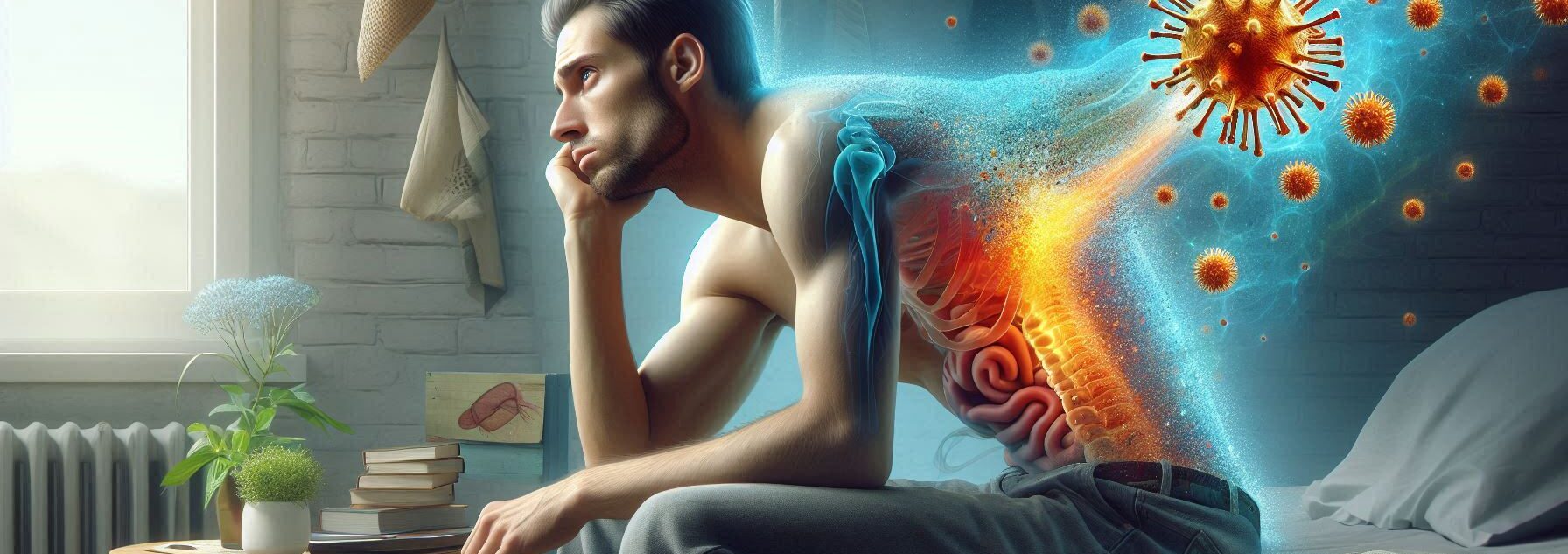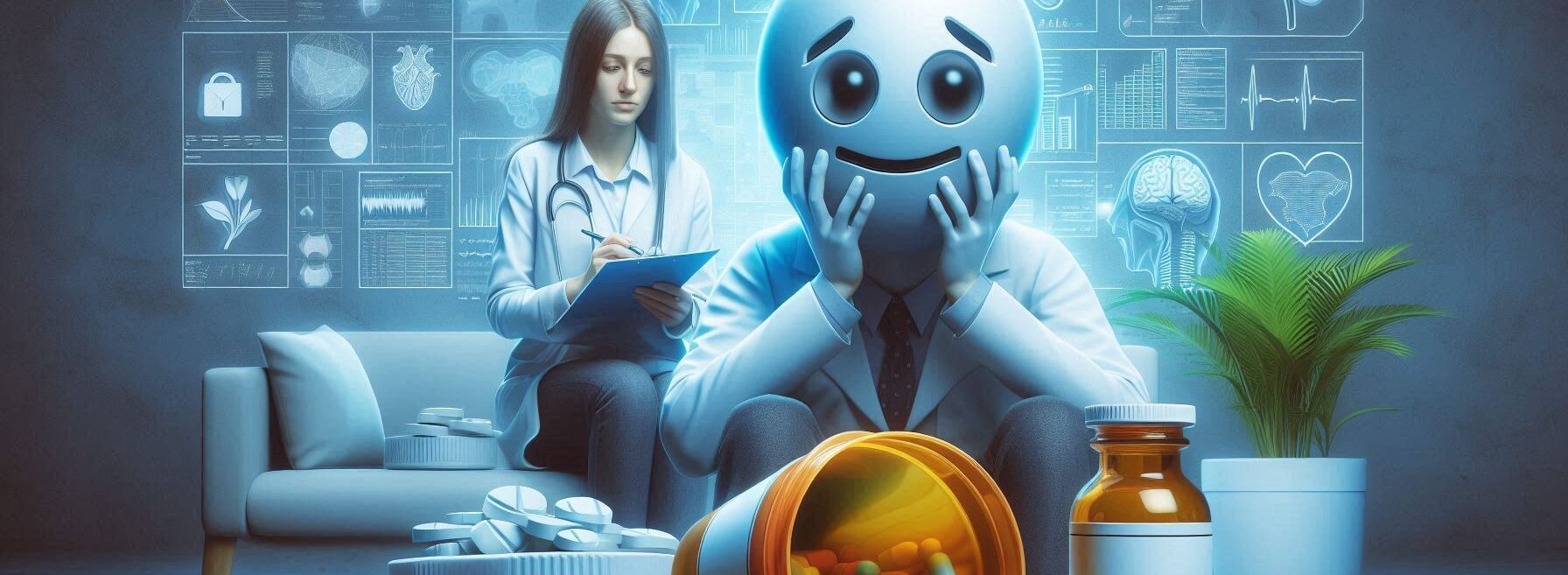If you’ve ever felt like life is one big game of Whack-a-Mole, where every time you knock down one problem, two more pop up, then welcome to the club!
Today, we’re diving into a topic that’s as complicated as assembling IKEA furniture without instructions: the connection between depression and chronic illness. Spoiler alert: it’s not pretty.
Top Takeaways and Key Concepts
- Chronic illnesses increase risk of depression due to physical strain and lifestyle limitations.
- Inflammation linked to chronic conditions may also contribute directly to depressive symptoms.
- Depression and chronic illness create a cycle where worsening physical or mental health reinforces the other.
- Building a support system, including family, therapists, or support groups, helps break isolation.
- Holistic practices like mindfulness, yoga, and proper nutrition improve both mental and physical well-being.
Summary of This Article
The article explores the complex relationship between chronic illness and depression, highlighting how physical discomfort, inflammation, and lifestyle changes contribute to emotional distress. It explains the vicious cycle where depressive symptoms worsen physical health, and physical limitations exacerbate depression. Key strategies to manage this dual challenge include building a supportive network of friends, family, or professional therapists, and adopting holistic practices such as mindfulness, yoga, and nutritious diets. By combining support, self-care, and healthy routines, individuals can improve their mental and physical well-being while navigating the difficulties of chronic illness.
The Double Whammy Effect

Please Note: This post may contain affiliate links. If you click one of them, we may receive a commission at no extra cost to you. As an Amazon Associate, I earn from qualifying purchases.
Imagine waking up every day feeling like a zombie who forgot how to walk. That’s what living with a chronic illness can feel like.
Now throw in depression, and you’ve got yourself a full-blown horror movie scenario—starring you! Seriously, it’s like being stuck in an elevator with both your worst fears: pain and sadness.
To be fair, having a chronic illness often means dealing with constant physical discomfort or fatigue. This unending struggle can take a toll on anyone’s mood.
I mean, who wouldn’t feel down when they’re battling symptoms that make them want to curl up under their blanket like a burrito? It’s hard to stay upbeat when your body seems determined to sabotage your happiness at every turn.
Interestingly enough, studies show that people with chronic illnesses are significantly more likely to experience depression than those without.
So, if you’re feeling blue while dealing with ongoing health issues, know that you’re not alone—and also that there might be some science behind it!
Why Does This Happen?
You might be wondering why chronic illness and depression are such close buddies. Well, let’s explore this tangled web of emotions!
One major factor is inflammation. Yep, inflammation isn’t just something that happens after eating too much pizza; it can affect your brain too!
Research indicates that inflammatory markers linked to various chronic conditions may also contribute to depressive symptoms.
So, if you’ve been experiencing joint pain alongside feelings of hopelessness—congratulations! You’ve just unlocked the “Two-for-One Special” in the realm of health woes.
Moreover, many people dealing with chronic illnesses face lifestyle changes that limit social interactions or activities they once enjoyed.
Picture this: your friends are off hiking mountains while you’re sitting at home trying to figure out which Netflix series will best distract you from your reality. It’s no wonder feelings of isolation creep in!
The Cycle of Despair
Now let’s talk about the vicious cycle created by this duo—chronic illness and depression are like two dance partners who have forgotten how to lead or follow properly. When one gets worse, so does the other! It’s almost poetic… if poetry were dark and sad.
For example, when someone feels depressed due to their illness, they might withdraw from social activities or neglect self-care routines (like eating healthy foods instead of ice cream for dinner).
Then guess what happens? Their physical condition worsens because they’re not taking care of themselves! Talk about digging yourself deeper into a hole!
On the flip side, if someone is struggling with debilitating pain from their condition but manages to keep their spirits high through social interaction or hobbies—good for them! They’re breaking free from the cycle and showing us all how it’s done!
Finding Support
So, what do we do about this mess? First things first: support is key! Whether it’s family members who understand what you’re going through or professional help from therapists specializing in both mental health and chronic illnesses—it takes a village…or at least a supportive group text chain.
Speaking of support groups—these can be absolute lifesavers (and sanity savers)! Connecting with others facing similar challenges can provide validation and camaraderie during tough times.
Plus, sharing coping strategies over snacks usually leads to laughter—which is always good medicine!
Honestly though, finding ways to communicate openly about how these issues impact each other is essential too.
If you’re feeling low because your back hurts again (thanks gravity), don’t hesitate to express those feelings rather than keeping them bottled up inside like last week’s leftovers.
Holistic Approaches
Let’s see…what else can help tackle this dynamic duo? Many people find holistic approaches beneficial in managing both physical symptoms and emotional well-being.
Techniques such as yoga or mindfulness meditation have been shown not only improve flexibility but also reduce anxiety levels—who knew downward dog could work wonders for your mind?
All things considered, nutrition plays an important role too! Eating whole foods rich in vitamins helps boost energy levels while supporting overall mental health (sorry chips; I love you but maybe save our relationship for cheat days).
And speaking of cheat days…don’t forget about indulging occasionally! Treating yourself doesn’t mean throwing caution out the window; it means enjoying life amidst challenges—and trust me; chocolate therapy has its merits!
Conclusion: Hope on the Horizon
In conclusion—or should I say ‘the final act’—while navigating both depression and chronic illness may feel daunting at times (like trying to assemble said IKEA furniture), remember there is hope ahead!
By seeking support networks tailored towards understanding these connections better alongside embracing holistic practices—you’ll discover pathways toward healing beyond despair.
Ultimately life may throw curveballs our way—but armed with knowledge & community—we’ll navigate through together!
Suggested Resources:
Mental Health America
https://www.mhanational.org/
National Alliance on Mental Illness
https://www.nami.org/
American Psychological Association
https://www.apa.org/
Frequently Asked Questions
How are depression and chronic illness connected?
Chronic illness can increase depression risk due to physical discomfort, lifestyle limitations, and emotional strain, creating a strong link between the two conditions.
Why do chronic illnesses raise the chances of developing depression?
Ongoing pain, fatigue, and lifestyle changes can overwhelm emotional resilience, while inflammation associated with many chronic conditions may also contribute to depressive symptoms.
Can depression worsen chronic illness symptoms?
Yes. Depression can reduce motivation for self-care, limit activity, and increase stress, all of which may intensify physical symptoms or slow recovery.
What role does inflammation play in this connection?
Inflammation related to chronic conditions may influence brain chemistry and emotional regulation, increasing susceptibility to depressive thoughts and feelings.
How can individuals break the cycle between chronic illness and depression?
Building routines, seeking support, staying socially connected, and engaging in activities that improve mood can weaken the cycle’s impact.
What types of support are helpful for managing both conditions?
Support from family, friends, therapists, and chronic illness or mental health support groups can provide understanding, encouragement, and practical coping strategies.
Do holistic approaches help improve mental and physical well-being?
Yes. Practices like mindfulness, yoga, gentle movement, and balanced nutrition can reduce stress, boost mood, and support overall health.

Kevin Collier is a passionate mental health advocate and writer for SadFAQ.com, where he explores the complexities of depression and mental well-being. With a deep understanding of mental health challenges, Kevin provides compassionate insights and practical advice to help individuals navigate their journeys toward healing. His articles aim to destigmatize mental health issues, offering support and resources for those seeking to improve their emotional resilience. Committed to raising awareness and fostering open conversations, Kevin’s work empowers readers to prioritize their mental health and seek the support they deserve.




